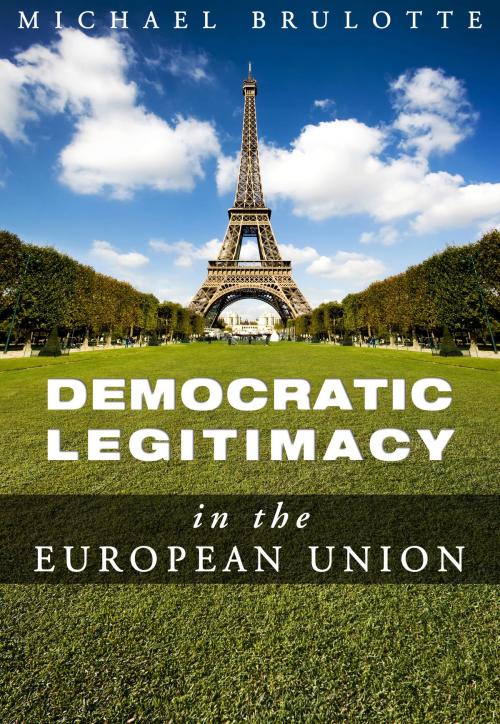Democratic Legitimacy in The European Union
Nonfiction, Social & Cultural Studies, Political Science, Government, Democracy| Author: | Michael Brulotte | ISBN: | 9781301868001 |
| Publisher: | Michael Brulotte | Publication: | March 16, 2013 |
| Imprint: | Smashwords Edition | Language: | English |
| Author: | Michael Brulotte |
| ISBN: | 9781301868001 |
| Publisher: | Michael Brulotte |
| Publication: | March 16, 2013 |
| Imprint: | Smashwords Edition |
| Language: | English |
As the European Community (EC) has grown both in size and in influence, an important political question has arisen about the European Union’s (EU) democratic legitimacy in promulgating laws and in governing national and international affairs: “Almost since its inception the EU has struggled to communicate the rationale of integration to the citizens of Europe and to generate some sense of identification with the European project. European citizens tend to conceive of the EU as a remote entity suffering from a permanent democratic deficit” (Cini 10).
Traditional concerns about democratic legitimacy of the European Union has been rooted in two domains. By the first account, the democratic deficit exists in EU institutions; that is, the very structure of the EU fails adequately to represent the interests of the citizens of the member states (Chryssochoou 381).
The second, socio-political account is more deeply rooted; it claims that the people of Europe do not sufficiently partake in a collective European identity and that such an identity—a sentiment of common purpose and connectedness—is necessary to impart legitimacy on EU authority (Chryssochoou 382).
These complimentary explanations tell a story about the emergence a supranational quasi-demos whose ubiquitous influence has grown faster than its public support.
Yet, upon close examination, neither explanation—considered separately or combined—can satisfactorily account for the democratic deficit perceived by European citizens.
This paper will first reject the account that institutional characteristics can adequately justify the democratic deficit; it will then argue that democratic legitimacy must come from the citizens’ collective consent, in part, by reformulating the socio-political account that an absent European identity is the deficit’s cause.
It will be argued that the democratic deficit of the European Union is the result of its creation and perpetuation without direct consent from the European citizens over whom its political jurisdiction has asserted authority.
As the European Community (EC) has grown both in size and in influence, an important political question has arisen about the European Union’s (EU) democratic legitimacy in promulgating laws and in governing national and international affairs: “Almost since its inception the EU has struggled to communicate the rationale of integration to the citizens of Europe and to generate some sense of identification with the European project. European citizens tend to conceive of the EU as a remote entity suffering from a permanent democratic deficit” (Cini 10).
Traditional concerns about democratic legitimacy of the European Union has been rooted in two domains. By the first account, the democratic deficit exists in EU institutions; that is, the very structure of the EU fails adequately to represent the interests of the citizens of the member states (Chryssochoou 381).
The second, socio-political account is more deeply rooted; it claims that the people of Europe do not sufficiently partake in a collective European identity and that such an identity—a sentiment of common purpose and connectedness—is necessary to impart legitimacy on EU authority (Chryssochoou 382).
These complimentary explanations tell a story about the emergence a supranational quasi-demos whose ubiquitous influence has grown faster than its public support.
Yet, upon close examination, neither explanation—considered separately or combined—can satisfactorily account for the democratic deficit perceived by European citizens.
This paper will first reject the account that institutional characteristics can adequately justify the democratic deficit; it will then argue that democratic legitimacy must come from the citizens’ collective consent, in part, by reformulating the socio-political account that an absent European identity is the deficit’s cause.
It will be argued that the democratic deficit of the European Union is the result of its creation and perpetuation without direct consent from the European citizens over whom its political jurisdiction has asserted authority.















